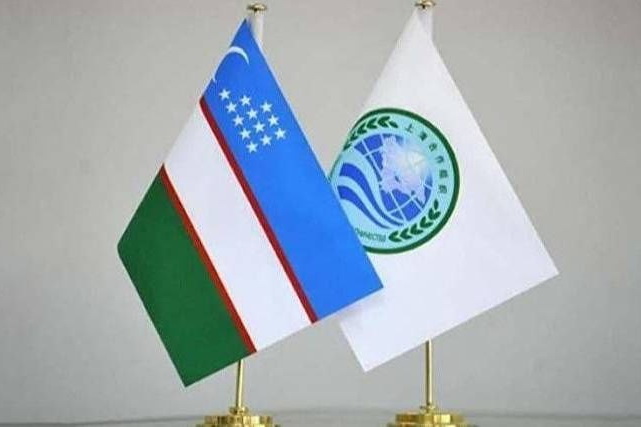
President of Uzbekistan Proposes New Formats of Cultural and Humanitarian Cooperation within SCO
President of Uzbekistan Proposes New Formats of Cultural and Humanitarian Cooperation within SCO
Tashkent, Uzbekistan (UzDaily.com) — On 31 August –1 September, the Chinese city of Tianjin hosted the latest summit of the Shanghai Cooperation Organization (SCO), which served as an important platform for discussing pressing issues of regional and global security, as well as economic development. Special attention was given to strengthening cultural ties and expanding cooperation among the peoples of SCO member states.
At the heart of the humanitarian agenda were Uzbekistan’s initiatives aimed at advancing people-to-people diplomacy, supporting youth, and promoting education and tourism.
President Shavkat Mirziyoyev emphasized that deepening cultural relations and strengthening people’s diplomacy are key factors in building long-term partnerships within the SCO. In this context, he put forward a set of initiatives focused on broadening humanitarian exchanges and bringing nations closer together.
Among the proposals were holding an International Folk Art Festival and launching annual contests and olympiads for students and young professionals, particularly in the field of innovation. These measures are designed to foster mutual understanding and trust among the youth of SCO countries.
The President placed special emphasis on education and youth development. With over 3.2 billion people living in the SCO space — more than half of them young — engaging the next generation has become a strategic priority. In the context of digitalization and globalization, their contribution to sustainable development is increasingly vital.
To that end, Uzbekistan proposed expanding the existing SCO University (founded in 2008) by creating an online campus within its partner network. The initiative envisions uniting the region’s leading universities on a digital platform, enabling joint academic programs, student exchanges, and collaborative research projects.
Currently, the SCO University brings together dozens of higher education institutions from member states, offering programs in ecology, history, energy, and other fields. Students are already actively engaged in international summer schools and exchange programs, highlighting the strong potential for further growth in this area.
The SCO Youth Council also plays an active role by coordinating forums, sports festivals, volunteer initiatives, and educational events. Uzbekistan has repeatedly hosted such gatherings, including international debates and startup forums, laying the groundwork for new projects in education, entrepreneurship, and innovation.
Continuing the humanitarian focus, President Mirziyoyev also stressed the potential of tourism as a key area of cooperation. He proposed the launch of an “SCO Tourism Corridor” and the establishment of a Medical Tourism Alliance. These initiatives aim not only to boost tourist flows but also to strengthen interregional connectivity. Uzbekistan attaches great importance to enhancing tourism exchanges across the SCO space, which is home to over 44% of the world’s population.
Despite this, the sector’s potential has not yet been fully realized. The combined cultural heritage of SCO members, observers, and dialogue partners includes 207 UNESCO World Heritage sites, a unique resource for tourism development that traditionally attracts travelers from around the globe.
Unlocking such potential requires highly trained specialists. Notably, in 2018 Uzbekistan opened the Silk Road International University of Tourism in Samarkand — the country’s first international university specializing in tourism. The institution trains professionals in marketing, project design, logistics, and other fields. Today, in addition to Uzbek students, it hosts young people from Kazakhstan, Kyrgyzstan, Iran, Russia, Tajikistan, Turkmenistan, and beyond.
As a natural continuation of the cultural and humanitarian agenda, President Mirziyoyev suggested expanding SCO initiatives into the SCO+ format by launching the “Cultural Dialogue of the Great Silk Road” to promote cultural diversity and human connections.
Within this framework, he invited partner countries to take part in the UNESCO General Conference, scheduled to be held this year in Samarkand. The event is expected to serve as a major international platform showcasing the rich historical and cultural heritage of SCO countries.
These initiatives complement the ongoing SCO Cultural Heritage Project, launched in 2021, which includes international exhibitions and UNESCO catalogues. Language centers are also active in several member states, contributing to educational and tourism exchanges.
The SCO Cultural Capital project further demonstrates the cultural dimension of cooperation. In 2022, Samarkand was awarded this status and became a hub for international festivals, concerts, and exhibitions, helping bring the region’s peoples closer together.
Overall, the outcomes of the summit underscored that Uzbekistan’s initiatives are not only timely but also strategically significant for the long-term development of the SCO’s humanitarian agenda. They aim to enrich interstate cooperation with new content, deepen intercivilizational dialogue, and lay a solid foundation for sustainable and peaceful coexistence across a region that is home to more than one-third of the world’s population.
Bahromjon Sotiboldiev
Head of Department, Institute for Strategic and Interregional Studies under the President of the Republic of Uzbekistan